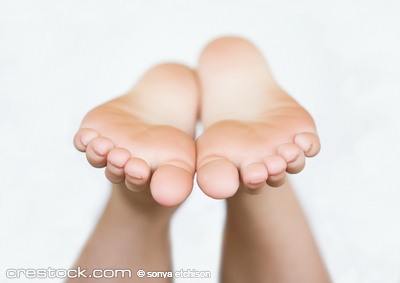Now is a good time to have your vitamin D levels checked (via a blood test) if you haven’t done so recently. Most people lose a substantial amount of vitamin D as they hibernate indoors over the winter and the UV-B rays which provide vitamin D are almost non-existent. Vitamin D is needed more than just to metabolize calcium and build strong bones; it’s necessary for a healthy immune and nervous system. Optimum serum levels are between 50-80 ng/ml. If your level is very low you may need to supplement with some Vitamin D3 (not D2) as even an adequate diet and sun exposure may not be enough. Speaking of sun – sunscreen blocks the absorption of vitamin D and also the more tan you get, or the darker your skin is, the harder it is for your body to absorb vitamin D. Even worse, most sunscreens out there, even the ones found in health foods stores like Whole Foods, contain ingredients that actually promote free radical damage to your skin. It is thought that the use of most sunscreens actually promote skin cancer rather than prevent it. They do this by blocking vitamin D levels from being absorbed into your body and also via free radical damage. By lathering up in sunscreen, many are blocking the absorption of vitamin D as well as giving themselves a false sense of security as they think they can stay in the sun longer, only to absorb more of the dangerous UV-A rays. So get a tan, but don’t burn. And if you’re very fair skinned and burn very easily, then more reason to have your 25OH Vitamin D blood level checked. Personally, I use sunscreen at the beginning of the year when I am outside a lot and don’t have much of a tan. As soon as my skin darkens and I know there is no chance of me turning even slightly pink, I’m done with the sunscreen for the year. The rule is if you’re not going to burn, then don’t use sunscreen.
Soleo Organics still seems to be the best non-harmful sunscreen out there. It contains the proper type of zinc that does not cause photoreactivity on your skin leading to free radical damage. Soleo contains no synthetic ingredients or harmful lipids, such as partially hydrogenated oils. It contains antioxidants and natural oils that not only protect the skin, but also help with vitamin D absorption. The zinc in it is coated as to act as physical and chemical sun protector, by deflecting the sun’s rays. As with anything you put on your skin, (and therefore absorb into your body), it should be good enough for you to eat, and this stuff is (but don’t eat it). I’ve found some Soleo at beach surf shops and used to see it at REI, but during a recent trip over there I did not find any. You can check out their website www.soleousa.com to find out where you can buy some, on-line or in a store.
Don’t forget that eating well is not only necessary for a healthy body, but for healthy skin. A diet rich in Omega 3 fats, (fish and flax and most egg yolks), and antioxidants, (fruits, vegetables, herbs), will keep your skin and your health protected. Natural, unrefined wheat germ oil is perhaps the best oil to protect your skin from the sun as well as a great oil to use if you are unfortunate to burn.
If you want to learn more about vitamin D you can check out this informative site: www.vitamindcouncil.org.
And hey, if you’re headed to the beach then you should be walking barefoot in the sand; it’s great for your feet. Actually, the more you are barefoot the healthier you will be. I thought it would be good to re-visit my July 2009 article on footwear and just how important it is to chose the right shoes. A couple weeks ago on HBO’s “Real Sports” they did a piece on the barefoot running “movement”. Well, this is actually nothing new but is getting more popular. They still call it a debate – mostly because there are lots of podiatrists out there who still think that a person needs a hefty supportive and highly cushioned shoe. Unfortunately, those types of shoes are the worst for people. And wow – there is a shoe out by Asics that actually has an arch that changes in response to a woman’s fertility cycle. That’s nuts. The only interesting thing I can see here is that they actually understand that structure is most often influenced by biochemistry. In other words – yes, a woman’s foot is going to change somewhat through the month as estrogen and progesterone levels affect the muscles of the hips and legs. This will therefore influence gait. However, it should not be drastic enough to cause such muscle imbalances that a shoe needs to be changing with the hormones throughout the month. If that’s the case, then the hormonal imbalance needs to be addressed. This is actually very common as most women don’t detoxify estrogen very well (and therefore have some level of PMS) and may have hip, knee, or foot discomfort typically during ovulation or during the second-half of their cycle. But I’m pretty sure the Asics won’t help you detoxify estrogen. Hey, maybe Asics should make a shoe for us guys so we can run faster (away) from those women at a certain time of the month. There’s a concept.





Leave a Reply